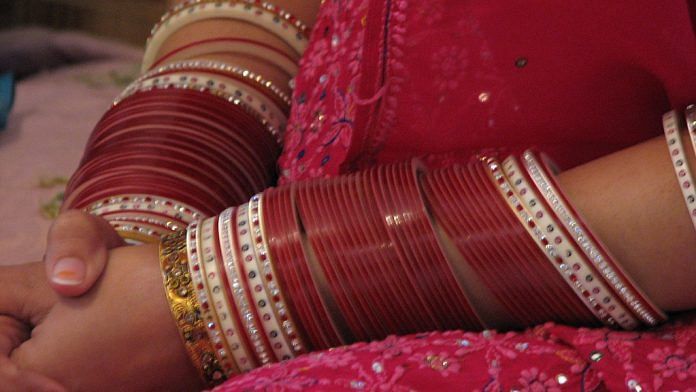Author Flock says Indian middle class wants to push boundaries while maintaining a certain status.
Mumbai: Even as Indian culture, way of life and ideas are undergoing a rapid change, the concept of “middle class morality” is still very strong, American journalist and author Elizabeth Flock said.
Flock, who recently authored a book titled Love and Marriage in Mumbai, said the Indian middle class comprises people who want to push the boundaries, but also have an unconscious desire to protect a certain status.
“There is very much the idea of the middle-class morality. If you make a mistake, you push the boundaries too much, you do something you are not supposed to, people will talk about it. It exists among the very rich and very poor as well, but it is very significantly present in the middle class,” Flock said, speaking to ThePrint in a telephone interview from Chicago.
Her book, published by Bloomsbury in India in June, is a non-fiction account of three married couples living in Mumbai, in which she fleshes out the conflicts within them brought on by this sense of a middle-class morality.
Her protagonists Veer and Maya, both Marvaris, Shahzad and Sabeena, a Muslim couple, and Tamil Brahmins Parvati and Ashok are all characters who want to break the rules, but struggle to do so within the confines of expectations of their families, patriarchy and unquestionable dos and donts laid down by their caste and religion. She interviewed the couples individually and together for several long hours, but has changed their names in the book to protect their identities.
Flock stayed with a number of families in Mumbai and of all the people she met, the three couples that she ended up writing about stood out the most as they were “romantics” and “rule breakers” and had a certain “impatience for middle-class morals.”
However, she also said that in the time that she spent in the city, she did not come across too many inter-caste marriages, especially among the middle class.
“There were some from liberal, elite, upper class backgrounds, kids in their 20s and 30s who I met who married inter-caste. But, I don’t know. We hear about those a lot in India, but they are still very much the exception to the rule,” Flock said.
She added, while she cannot accurately compare Mumbai to the rest of the country as she spent most of her time in the economic capital, to her, the city seemed to her as one that more eagerly embraced change.
“You can get away with a lot in Mumbai. It is a city that is always at the forefront in pushing the boundaries. I very much wanted to follow people who wanted to change the ways that defined what they could do and could not do. That may be happening in a Bengaluru or other places as well, but I think it is happening more in Mumbai.”
Flock first came to Mumbai for two years in 2008 and then again in 2014, and even in the four years that she was gone, while the city looked much the same, the people she had met, and their marriages as she knew them, had changed a lot.
“I think the biggest change that I saw was the debate between a joint family versus a single family unit. Joint families were becoming more uncommon. Even for the couples in the book that was the major point of stress,” Flock said, adding that a majority of the people she met complained about joint family arrangements.
Anecdotally, she said she found that the way society functioned, family units functioned was changing very rapidly. But, there is also a certain backlash to it and that creates a lot of conflict.
“For example, something that also happened in case of Maya is that though the educated younger generation of women wants to work, they still want to follow the rules. That is why though many more women are getting educated, the number of working women remains low. Women may like watching pornography, but they are expected to be super chaste and have to be a certain way with their in-laws,” Flock said.
“It does create a lot of conflict in the mind,” she added.




I am unmarried. My age is 35.father is death.